Last Updated on August 2, 2021

Welcome to The Best Movie You NEVER Saw, a column dedicated to examining films that have flown under the radar or gained traction throughout the years, earning them a place as a cult classic or underrated gem that was either before it’s time and/or has aged like a fine wine.
This week we’ll be looking at THE BROTHERS BLOOM
Some spoilers may be found.

THE STORY: Brother Stephen and Bloom have spent their entire lives in the con man game. But now Bloom wants out for good, and so Stephen ropes him in for one last great swindle: a lonely, eccentric millionaire. There's just one condition. He can't fall in love with her.
THE PLAYERS: Writer/director Rian Johnson. Actors Rachel Weisz, Adrien Brody, Mark Ruffalo, Rinko Kikuchi, Robbie Coltrane, Maximilian Schell, Max Records, and Zachary Gordon (NATIONAL TREASURE: BOOK OF SECRETS, DIARY OF A WIMPY KID). Cinematographer Steve Yedlin (EPISODE VIII, LOOPER, GIRL MOST LIKELY, BRICK). Composer Nathan Johnson (DON JON, LOOPER, BRICK).
THE HISTORY: Rian Johnson's BRICK was a smash success, bringing in a boatload of critical raves and a box office take of almost $4 million against an estimated budget of $475,000 (not to mention an extended life in the realm of home-release). He began writing THE BROTHERS BLOOM after taking BRICK to Sundance, and spent most of the rest of 2005 working away at it. He began knowing he wanted to do a con man movie, evolving that mission into one of "a character-based con man movie, where it's not so much about a big plot twist at the end so much as getting the audience to actually care about the characters and then doing an emotional payoff at the end."
From there it would be an odyssey of four more years before the film was made, including a period where Tom Cruise went so far as to sit down with Johnson and give his thoughts on the script. After passing up other directing opportunities with more established properties and finding funding through independant sources, filming began in 2007. Production moved through Europe, from Serbia and Czech Republic to Romania, Greece, and Montenegro. Weisz in particular gave her all to the character of Penelope, heiress and hobby collector extraordinaire, learning in just two weeks how to legitimately do every single one of the activities she's seen performing in onscreen. Released in May of 2009, it made $5.5 million at the box office and found moderate success on home video (though most likely not enough to make back ts production budget).

Mark Ruffalo: I got a call that Rian wanted to meet me, so we met, and we talked about me playing Bloom, actually. And then I got a call a few months later, saying, 'I want to meet you for Stephen.' I said, 'Stephen, really? Who got Bloom?' I didn’t know if I could do this part. I didn’t know how to approach it. So I sat down with Rian, and we started talking, and he convinced me that I could play it, and I tried to convince him that he should get somebody else. And he won, thank God. So then we started figuring out who the guy was. We used [Italian actor] Marcello Mastroianni a lot. And I know a diamond thief who’s an ex-con—who’s a real con man—and I often thought about him. He was a hustler, he was a rip-off artist, and he was probably one of the most charming, fun, gregarious lovers of life that I’ve ever come across in my life.
WHY IT'S GREAT: From the curious box office hit of NOW YOU SEE ME to its upcoming sequel to the one-two punch in 2006 of THE ILLUSIONIST and THE PRESTIGE, magic is a popular subject in cinema these days. Heck, cinema itself is a kind of magic, with THE PRESTIGE in particular using so many of this medium’s tools – editing, voiceover, props and perspective, the very expectations of the audience – to craft a movie that is itself a magic trick. THE ILLUSIONIST works to achieve the same effect, while NOW YOU SEE ME and NOW YOU SEE ME 2 take a different track and push their CGI even farther down the path towards out-and-out wizardry.
But while a magic trick involving cards or a rubber ball may be about a bit of wonder, flash, and fun – the movies that use those tricks are always working them into a story that’s about so much more. Whether it’s THE PRESTIGE’s obsession with obsession or THE ILLUSIONIST’s memory-tinged period-piece of love and quiet rebellion, just like every good trick there’s a great deal more going on than what may at first appear. At their hearts one’s a dark and thrilling mystery while the other’s a romance, and both play those parts very well. And then there’s THE BROTHERS BLOOM, equal parts strange characters and stranger circumstances, all wrapped up in the careful use of charm, rhyme, invention, convention, visual comedy, and the best magic trick you’ve ever seen. At its heart it is most of all a classic adventure movie, and it plays that part very well indeed as it spins a yarn about two con men brothers (and their silent demolitions expert-assistant named Bang Bang) who are pulling off the classic last score so that one brother can finally quit the business and live a normal life. But the mark they pick for this final con is a rich heiress with a traumatic past and a proudly-odd present, chomping at the bit for the kind of excitement and adventure the con offers her. Of course that same brother then falls in love with her. Act becomes reality, reality becomes act, and – and that's actually an excellent transition line.

Rian Johnson: Dialogue is something I really enjoy; in some ways I feel like I enjoy it too much and that’s one thing I’ve been trying to work on as a writer, not saying everything with dialogue and trying to pull back on it. As a writer, it’s so tempting to put everything into words. One of the reasons Rinko [Kikuchi]’s character, Bang Bang, in [The Brothers Bloom] is silent, is to give me one character in the whole thing who couldn’t lean on dialogue. Forced my brain into thinking of each of the scenes visually, and thinking about different ways of communicating information rather than talking.
Think for a second about stories. They’re everywhere. Narrative is ubiquitous throughout human history – it’s arguably how we make any sense of this vast thing we’re somehow suddenly born into. The fabric of reality is woven with stories. And we’re all storytellers, not just those humans who go become writers, actors, inspirational speakers, or what have you. Every day we live, every choice we make is another step in the story of our lives, one which is built out of desire and memory, loss and love, tears of happiness and sadness alike. And if you look back at your life – if you really stare into the motley medley of moments that make up whoever you are – you’ll see how far down the path you’ve come from a single choice. A single idea. A single mistake. We define ourselves with the stories we write for ourselves, the ones we live everyday in the eyes of anyone who may be watching (even if “anyone” is just us). Identity becomes key to functioning; it’s our shorthand for relating to the world. And when that’s challenged? When that’s shaken out of complacency of habit? It can be a shocking, thrilling, frightening, exciting thing.
This is a story about stories. It starts with an extended sequence that is as much the backstory of events that happened in the lives of our lead characters as it is the emotional layering that sets everything else up. It's a knowingly fictional sequence, full of rhyming narration and precociously verbose children – it may not even be true. It probably is, or at least a decently-sized sliver. But whatever the case it's true for them, a tightly-constructed explanation for how, who, and why they are. It's one they've written, told, and re-enacted time and time again, and now everything they do is a part of that cycle of self-fulfilling prophecy… Until something shakes that up. And that something is Penelope, aka Rachel Weisz in a performance that takes a character who a another actress might have been lost in and invests her with such subtext, such wounding and hope and sensitivity and pure joy, that the very nearly steals the show from the dynamic con man duo of Adrien Brody and Mark Ruffalo and their dynamite associate Rinko Kikuchi. Every con the brothers spin is a new story in and of itself, and there's so much fun to be had in watching this motley crew of personalities switch between their roles and their "real lives" (which as said above are really roles in and of themselves) as they embark on a globe-trotting adventure where we never quite know when the act stops. Anyone who comes into the story of their con could be a conscious part of it, an unwitting player, or a specter from the past come back to haunt them for what they've done. We never know quite know, and the more the movie relishes in tempting us with that fact the more fun it is to fall in with its con and just get swept along.

Nathan Johnson: … it's not like I hear ideas and immediately think of music. I'm just excited about the world that [Rian's] creating. What the world is going to be or what kind of textures there are going to be… those conversations come quite a bit later. I tend to go on set while they're filming and use that as a bit of a low pressure time to just explore, to maybe follow some of the paths we've talked about and I have to say, I really love that process, just being on set, just being in the world and watching the actors perform and the set design… So much of what goes into it is coming from [Rian's] perception and what he wants the world to be. With every movie, he usually comes up with at least a handful of references. For Brothers Bloom, it was very much in the world of Nino Rota, whereas Brick was much more along the lines of Morricone and Tom Waits. Then I just kind of immerse myself in that and try to bounce back stuff that makes him smile.
But it's the smaller pieces that really make this movie sing. The bits of physical comedy that so often seem to be happening in the background, the almost absurd balancing act of complexity that the cons require, the fact that even the people putting on the con don't know what's fully going on, the actors who bring such life and theatrical definition of character to their few scenes (looking at you, Mr. Maximillian Schell as the one-eyed ghost from the past). Theatrical is actually a key word here, and may well be one of the main reasons why many audiences and critics didn't seem to take to THE BROTHERS BLOOM when it first released. There's a tone, a particular adventurous energy, to this whole Rubik's cube of interlocking lies and half-truths, and the movie is gleefully unabashed in how it embraces that earnest and – ironically – honest spirit of adventure.
Looking back, I've been using that word a lot in this recommendation – but only because it's the word which eapt to my mind at the start and then stayed with me through to the end. THE BROTHERS BLOOM feels like a caper film in the classic Hollywood sense – like something Cary Grant and Tony Curtis might star in – albeit one that willfully loses itself in the sheer amount of fun it's having as it and its characters weave this web of fantasy for us and for each other. They do it because they're searching for love, for identity, for meaning, for something larger than their natural lives. They do it because they can, and because they can't help themselves. They do it because an audience exists.
A funny story to close us out, which dips into spoiler territory in the sense of saying something about what's not going on. Rewatching the trailer below, I wonder if my false memory is born out a single line tossed off by Adrien Brody about suspecting that Penelope knows what's going on. Until my rewatch of the movie itself, I thought I remembered a reveal that Penelope was actually the one conning them the entire time. Maybe it's just a different movie that I'm remembering. I was taken aback, and then disappointed, when I realized I'd been wrong. That being said: even though she isn't actually doing so, I've a sneaking suspicion that she does have some idea she's being taken for a ride. But it's such a genuinely fun one for her, something so twisty and unexpected, that she doesn't care. She makes a gamble, and it shakes her up, and out of all the complete, utter, mad improbability of the entire situation, she finally finds something true and priceless that – because this is a fantasy story – she'll have for the rest of her life. Love with Bloom.
And that may be the greatest trick Stephen Bloom – or Rian Johnson – has pulled so far. A pyramid of tales, falsities, characters, lies, and lives, all built in service of a finale full of truth. Everyone's story in this movie ends with them being finally, finally strong enough and brave enough to at last be their full authentic self. And with the close of those, so many more stories begin.

Rachel Weisz: I really wanted to do comedy and was obsessive about finding one… I read this and said ‘this is the one. Penelope appealed to my sense of humor. She’s kooky and a little eccentric. Rian Johnson said he saw it like the Marx Brothers. There is a Harpo quality to her and a delicious innocence.
BEST SCENE: Below you'll find the trailer and the first track off of Nathan Johnson's brilliant and inventive score for the movie. It carries the spirit of the film absolutely perfectly that I'm not going to go on and on about it, and let his work speak confidently for itself.
SEE IT:
You can buy THE BROTHERS BLOOM on Blu-Ray and DVD HERE!
PARTING SHOT:
Rian Johnson: One of the films that I was watching over and over when we were in production on this was 8 ½. I would go to Fellini in terms of describing my take on this. I think that the stuff that he hits hardest for me emotionally is the stuff that dares to be the biggest and the most overblown but that still has human truth behind it. If something can stretch the heights of reality, if something can be stylized, be grand, be bigger than life and still be focused on a point of emotional truth, those are the things that pierce the deepest for me, that end up connecting and staying with me, that I end up mining the most truth from in terms of my life. Be it 8 ½ or recently I’d point toSynecdoche, New York, which was probably my favorite film from last year. On some levels you could point to it and say how far it departed from reality and how surreal elements of it were, but at the same time it took that level of grand absurdity and focused it all down to something very, very human. For me there’s nothing better than that.



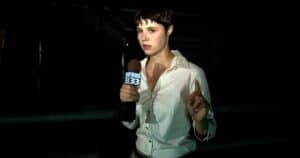
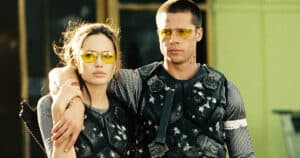
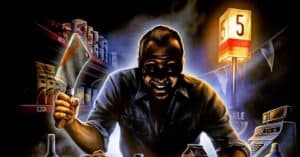
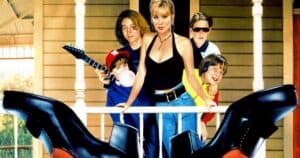

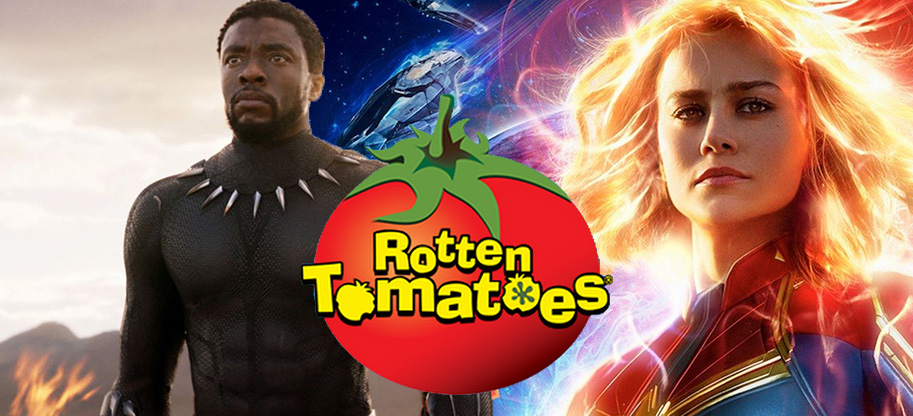
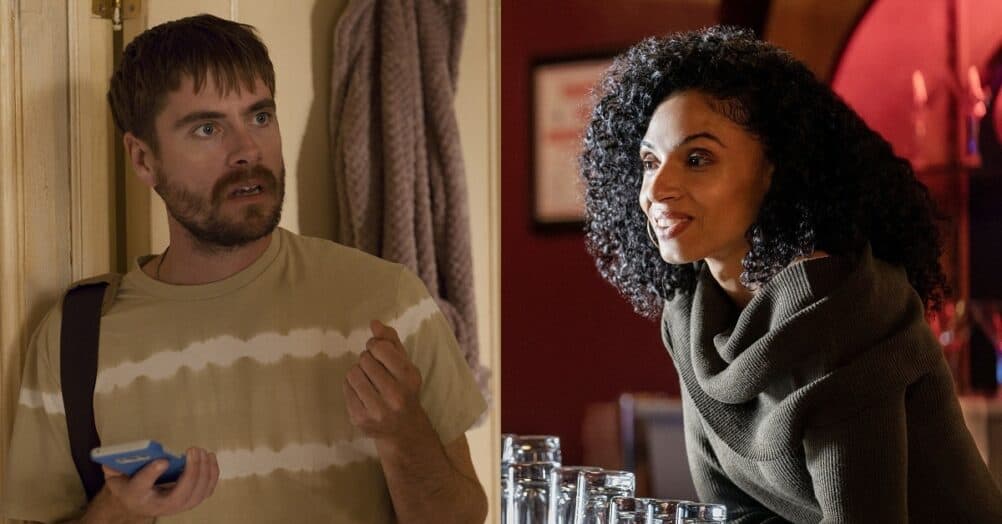

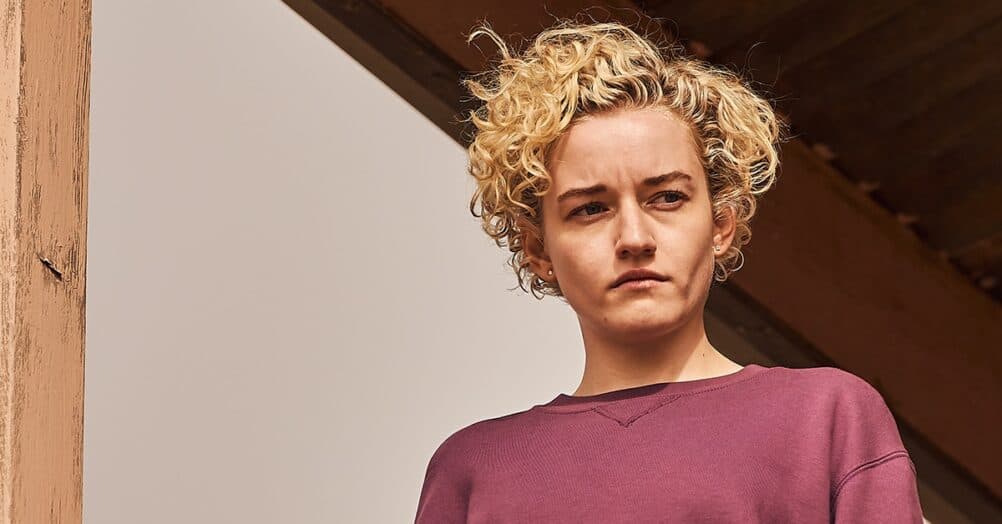
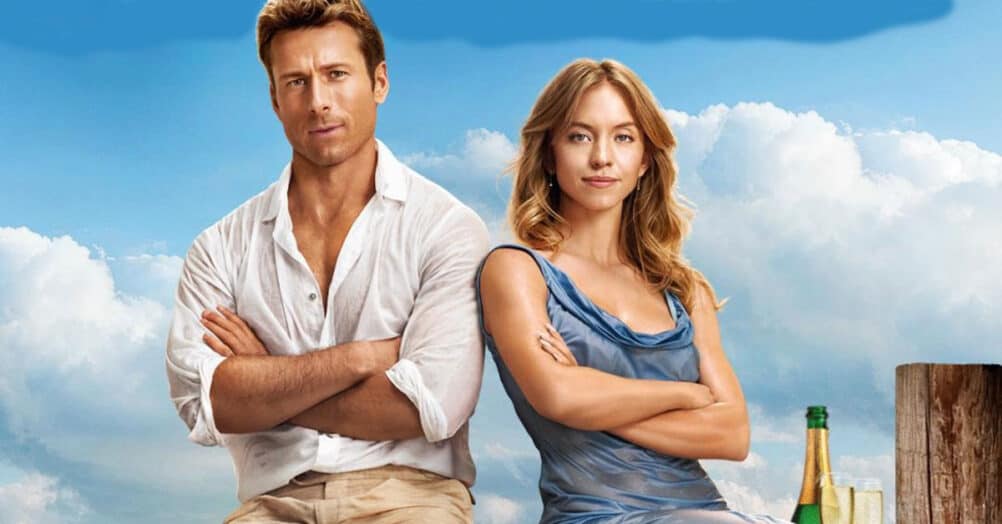
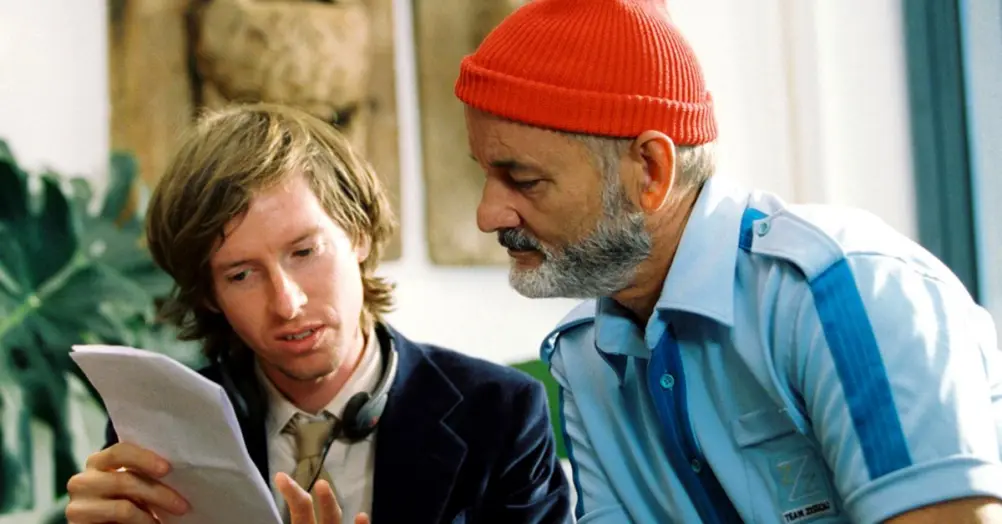
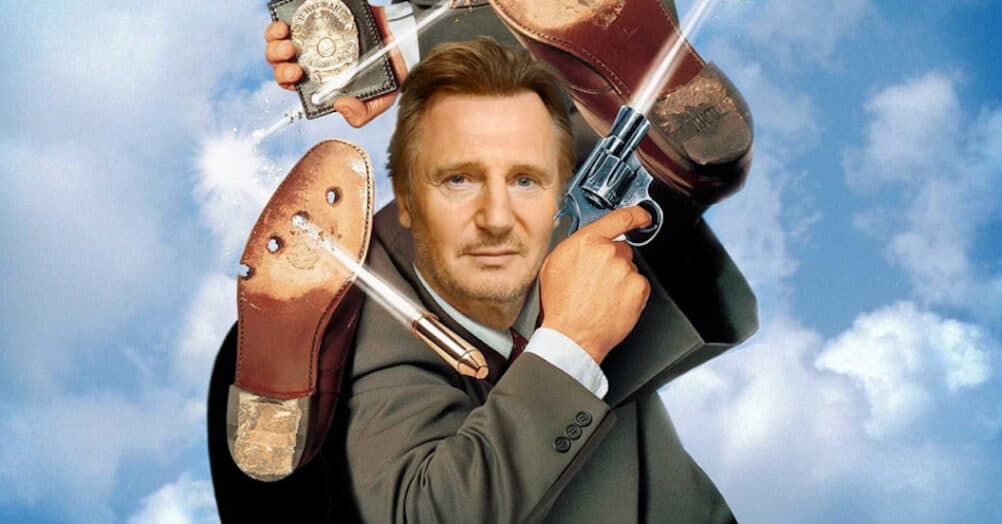
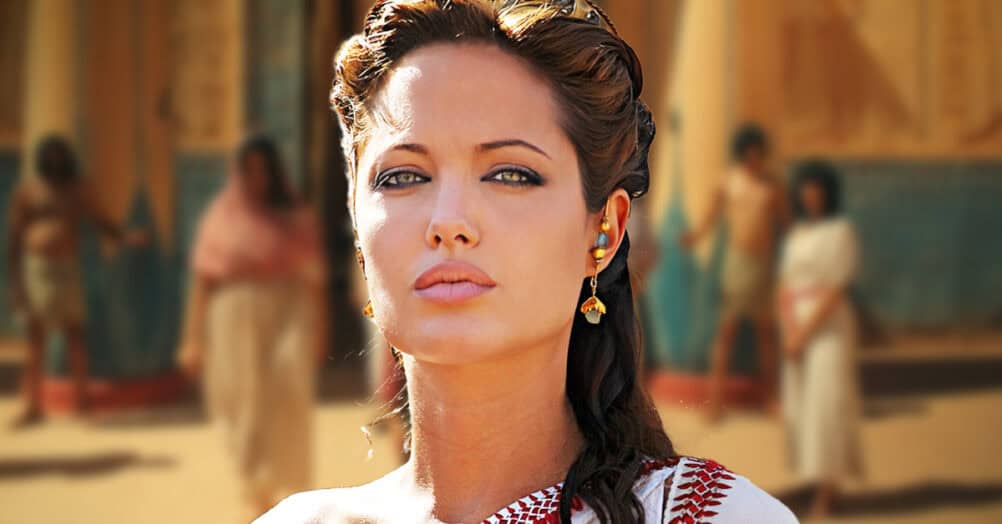
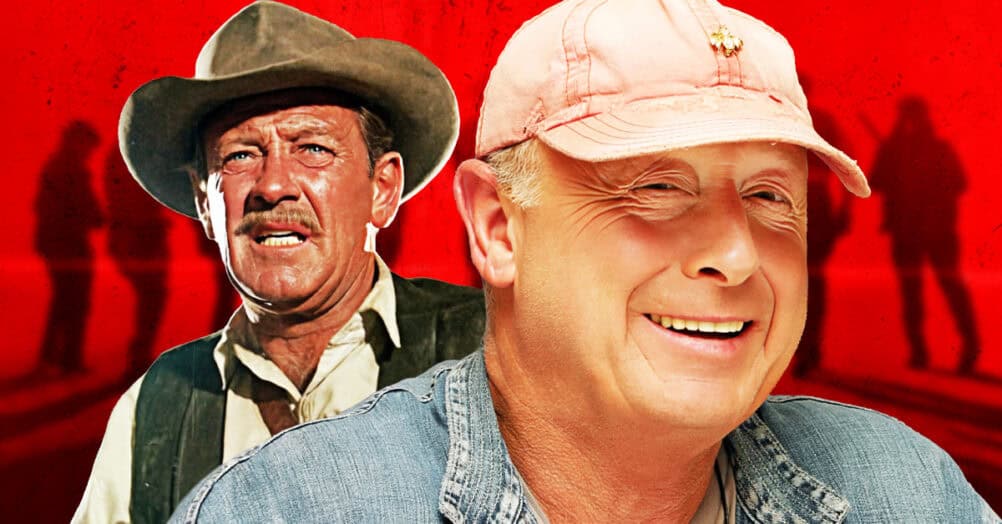
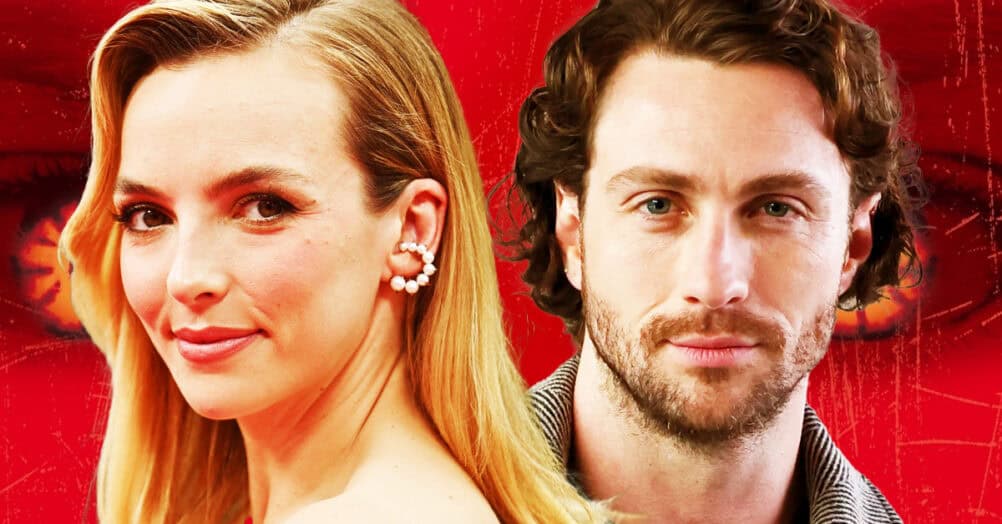
Follow the JOBLO MOVIE NETWORK
Follow us on YOUTUBE
Follow ARROW IN THE HEAD
Follow AITH on YOUTUBE